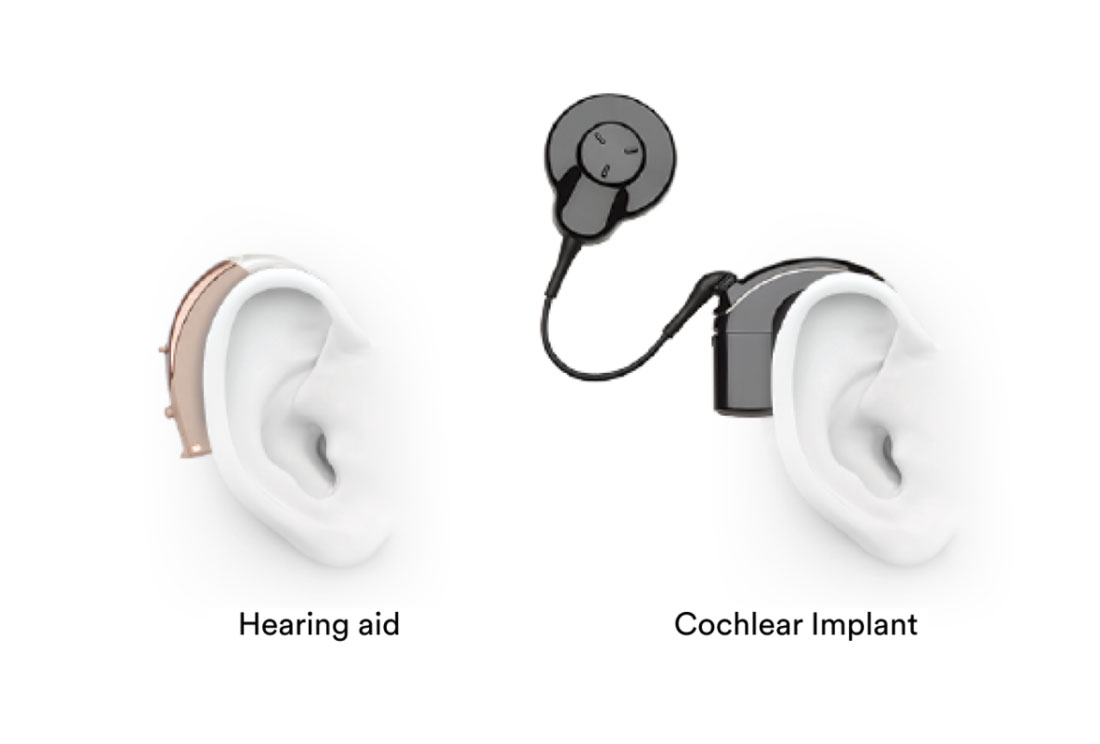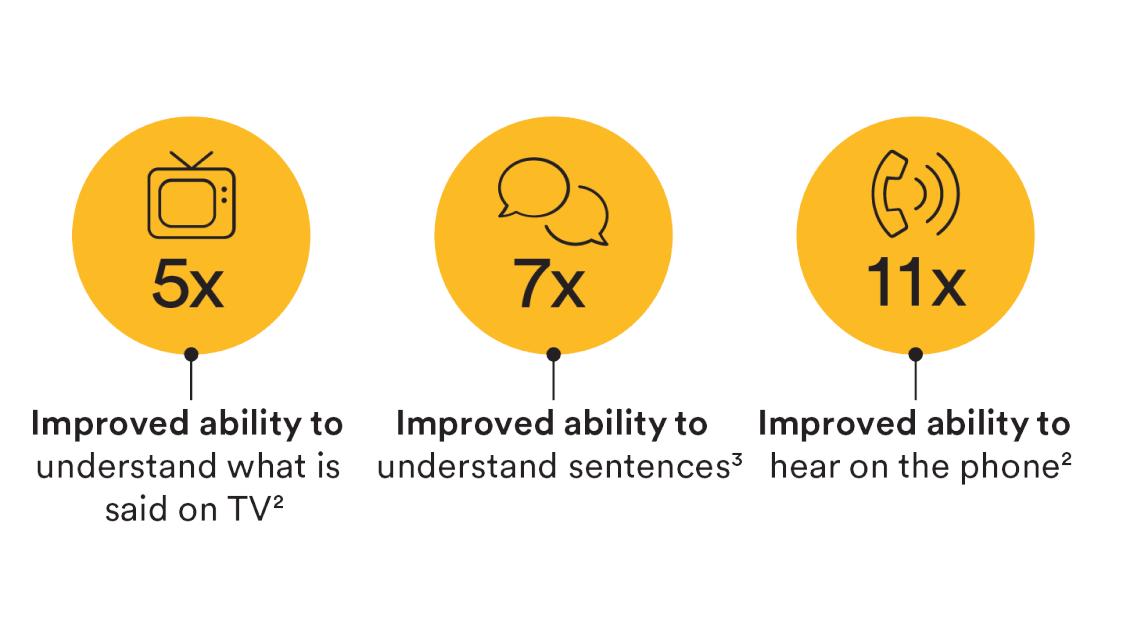When hearing aids aren't enough
Do you wear powerful hearing aids but still struggle to hear? An implantable hearing solution may be the answer you've been looking for.

What you'll find on this page
- Discover the signs that hearing aids may not be providing enough benefit
- Hear from someone who has experienced a hearing journey similar to yours
- Take the next steps to better hearing
Signs that hearing aids may not be providing enough benefit
- Have difficulty hearing conversations, especially with background noise?
- Often ask people to repeat themselves?
- Often misunderstand what people say?
- Have trouble hearing on the telephone?
- Turn up the volume on the TV louder than others in the room prefer?
- Feel people often mumble when they talk?
- Regularly withdraw from conversations because it’s too difficult to hear?
- Read lips to understand what people are saying?
If you answered "yes" to any of these questions, an implantable hearing solution, like a cochlear implant or bone conduction solution, may be the answer.
What’s the difference between hearing aids and cochlear implants?
Hearing aids help many people by making the sounds they hear louder. Unfortunately, as hearing loss progresses, sounds need to not only be louder, they need to be made clearer. Cochlear implants may help give you that clarity, even in noisy environments.1
"I realised the only thing hearing aids were doing for me was raising the volume. I was just hearing louder mumbling. It isolated me, and I didn't do all the things I used to do because I was having such a difficult time hearing."
- Nina, Cochlear™ Nucleus® System recipient
Studies show that compared to two hearing aids, adults with cochlear implants experienced:
How much does a Cochlear Implant cost?
Unlike hearing aids, Cochlear Implants are covered by Medicare.† They are also covered by most insurance plans* and typically Medicaid.** Contact your insurance company or local Hearing Implant Specialist to determine coverage as well as your estimated out-of-pocket expenses. The cost of the cochlear implant will vary from person to person based on their specific health plan.
| Private Insurance | Medicaid | Medicare | |
|---|---|---|---|
| Cochlear implant systems |
Covered by most insurance plans* | Typically covered** | Typically covered† |
| Bone conduction solutions | Covered by most insurance plans* | Typically covered** | Typically covered† |
| Hearing aids | Generally not covered†† | Typically covered** | By law are not covered in traditional Medicare. Coverage may be available in certain Medicare Advantage Plans. |
Disclaimer
Please seek advice from your health professional about treatments for hearing loss. Outcomes may vary, and your health professional will advise you about the factors which could affect your outcome. Always read the instructions for use. Not all products are available in all countries. Please contact your local Cochlear representative for product information.
Views expressed are those of the individual. Consult your health professional to determine if you are a candidate for Cochlear technology.
For a full list of Cochlear’s trademarks, please visit our Terms of Use page.
For candidates residing in Canada, you should contact your local hearing implant center to determine coverage. The cost of a hearing implant may be covered by your provincial and territory health insurance plan. Every health insurance plan is different. Coverage varies by each province and territory, the type of hearing implant you may need and your hearing loss.
*Contact your insurance company or local Hearing Implant Specialist to determine your eligibility for coverage.
**Coverage for adult Medicaid recipients varies according to state-specific guidelines.
†Covered for Medicare beneficiaries who meet CMS criteria for coverage.
††Coverage of hearing aids may be an option under some plans.
References
- Hirschfelder A, Gräbel S, Olze H. The impact of cochlear implantation on quality of life: The role of audiologic performance and variables. w Head Neck Surg. 2008 Mar;138(3): 357-332e
- Lupo JE, Biever A, Kelsall KC. Comprehensive hearing aid assessment in adults with bilateral severe-profound sensorineural hearing loss who present for Cochlear implant evaluation. Am J Otolaryngol. 2020;41(2):102300. doi:10.1013/j.amjoto.201,.10230J
- Balkany T, Hodges A, Menapace C, et al. Nucleus Freedom North American clinical trial. Otolaryngol Head Neck Surg 2007;133(5):757-732.








